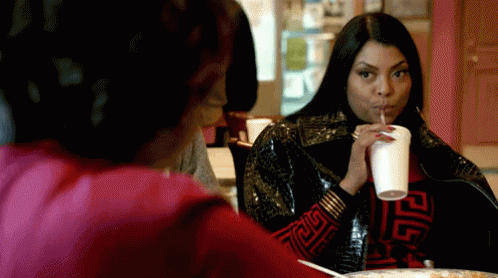'Hairspray' Is More Than Just A Musical, It's A Cult Classic
I read you like tomorrow's headlines, Tracy.
Set in 1962 Baltimore, "Hairspray" is a decorated 2002 musical with an abundance of accolades about a plump teenager's journey to integrate a local televised dancing show, fictional "The Corny Collins Show." I was first introduced to the musical in 2007 when it was adapted into a film. It starred Zac Efron as the suave lead dancer Link Larkin when he was still in his Troy Bolton-prime so I was naturally obsessed. Although, Efron does his own singing in this movie, unlike the first "High School Musical." Now that the film is streaming on Netflix US, here are just some reasons why "Hairspray" is such an important cult classic.
Main character Tracy Turnblad is described as a "pleasantly plump" teenager who regularly watches "The Corny Collins Show" and has a passion for dancing. When a spot opens up on the show, Tracy goes to audition only to be brought down by manager of the show station Velma Von Tussle because of her larger size and her willingness to dance in an integrated pool. Turnblad is saddened, but when Link sees her dancing with other teenagers in detention (who are all people of color), he suggests showing her moves at a school dance. Corny Collins notices her moves and puts her on the show, much to Velma's dismay, and gains a popular fanbase, also to Velma's distaste.
Both Tracy, her mother Edna, and Negro Day DJ Motormouth Maybelle (who is also Seaweed and Little Inez's mother) are portrayed as larger, but they definitely fit the description of "large and in charge." When Corny asks Tracy what she wants to be, she responds with "to be the first woman president or a Rockette." She then goes onto say that she would make every day Negro Day if she became commander-in-chief. Tracy also marches with the dancers from Negro Day after Velma Von Tussle let it slip that they would be canceling the segment. Her determination leads to the show officially becoming integrated in the end.
Edna is an insecure laundress who hasn't left the house since 1951 but comes out of her shell when she receives a makeover from a plus-size store owner, Mr. Pinky. Mrs. Turnblad realizes that beauty comes from confidence with oneself and she can eat all she wants because that is what she enjoys, no one else's opinion matters.
Motormouth Maybelle performs the song "Big, Blonde and Beautiful" in which the lyrics describe her as being heavyset and she "offers no apologies." She also mentions in the song that black skin is beautiful, a theme reiterated in another piece "I Know Where I've Been." Maybelle is portrayed as a rebel and a natural-born leader, having the girls perform "The New Girl in Town" on Negro Day when the white girls had done it prior even though the black kids had wrote the song, leading to Velma canceling Negro Day. She promises her daughter Little Inez that she will get to dance on TV.
When Tracy dances on the Miss Teenage Hairspray segment on the run from the cops, Little Inez joins in on the fun along with Edna and Motormouth Maybelle. When all the votes are counted, Little Inez has won Miss Teenage Hairspray, making the show integrated as the winner gets to become lead dancer.
The slaves were freed about 100 years prior to the 1962 setting, but African-Americans and whites were still segregated. There were different water fountains, restaurants, and even schools for the two races. In the musical's case, "The Corny Collins Show" had a Negro Day once a month where black teens danced because there could not be racial mixing. While "The Corny Collins Show" was sponsored by Ultra Clutch Hairspray, Negro Day was brought to you by Nap-A-Way, a hair product for "nappy" and "kinky" hair. When marching for Negro Day to become integrated after it was canceled, Tracy hits a police officer with a paper sign ever so slightly and the story escalates as it shown on the nightly news, going from she assaulted the officer to he is in critical condition. This is to show that stories are often exaggerated to portray only the bad side of blacks and their supporters even though there was little to no harm done.
Tracy's good friends Seaweed and Penny Pingleton take a liking to one another despite Seaweed being black and Penny being white. Motormouth Maybelle notes that the two prepare themselves "from a lot of ugly comin' at you from a never-ending parade of stupid." Many interracial couples faced hardships as it was deemed inappropriate for such intermingling even after the Civil Rights Movement. The role of Edna is also traditionally played by a male in drag with John Travolta taking on the role in the 2007 film and Harvey Fierstein in the 2016 live version on NBC.
With no shortage of important themes and messages, one cannot forget the great selection of music from "Hairspray." My personal favorite is "You Can't Stop the Beat," you just can't beat a great finale song. In the end credits of the film, the cast performs "Come so Far (Got so Far to Go)," signifying that although the characters and actual history overcame slavery and segregation and civil rights, it is still an evident in problem in America with African-Americans to this day being targeted against for the color of their skin.


































































